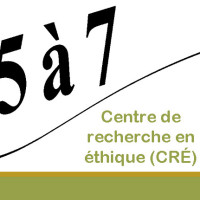
Kristin Voigt (McGill) et Colin Chapman (McGill)
2910 Boulevard Edouard-Montpetit
Montréal, QC H3T 1J7
Canada
Dans le cadre de ses 5 à 7, le CRÉ est heureux d’accueillir son « duo improbable » composé de deux de nos membres réguliers.
Nous recevons ainsi Kristin Voigt (philosophie et Institute for Health and Social Policy, McGill) et Colin Chapman (anthropology et McGill School of Environment, McGill). La présentation de Kristin sera intitulée « Relational equality and the expressive dimension of state action » et celle de Colin sera intitulée « 50 Years of Primate Conservation: Shifting Baselines and Shifting Approaches ».
Voici les résumés:
Kristin Voigt, « Relational equality and the expressive dimension of state action »
Expressive theories of state action seek to identify and assess the ‘meaning’ of state action, such as legislation and policies. As developed by Anderson and Pildes, state action must ‘express’ equal concern and respect for citizens, reflecting the requirements of relational equality. In this paper, I consider what an expressive theory of state action requires, given the commitments of relational equality, and how it relates to relational egalitarianism more broadly. After outlining the relational approach to equality and the idea of an ‘expressive theory’ of state action, I explore what kinds of policies such a theory might single out as problematic. I discuss different ways of assessing the ‘expressive content’ of state action, highlighting that it is unclear how we can determine the expressive content of state action. I discuss two specific questions that need to be addressed to develop an egalitarian theory of the expressive dimension of state action.
(Pour vous préparer à la présentation de Kristin, son article est disponible sur demande: valery.giroux@umontreal.ca)
Colin Chapman, « 50 Years of Primate Conservation: Shifting Baselines and Shifting Approaches »
The world is changing rapidly. Global assessments indicate that 2.3 million km2 of forest was lost between 2000 and 2012, and in the tropics, where most primate species are found, loss increased by 2101 km2 per year. But why use the year 2000 as a baseline? The rapid disappearance of tropical forests, the potential impacts of climate change, and the extent of bushmeat hunting have all only been appreciated in the last 50 years. Here I review the changes in the global status of primates over the last 50 years and discuss how the field of primate conservation has evolved to meet the challenges of the changing world. This analysis reveals a shift from an animal based perspective to one made to accommodate human needs, but what are the achievements of these different approaches, what are their rationales, and where do they lead? While statistics on deforestation and primate population endangerment are grim, there have recently been positive conservation gains globally and, as an illustration of conservation methods and outcomes, I discuss the conservation efforts around Kibale National Park, Uganda.
Chacune des présentations sera suivie par une période discussion. Bienvenue à tou(te)s!



